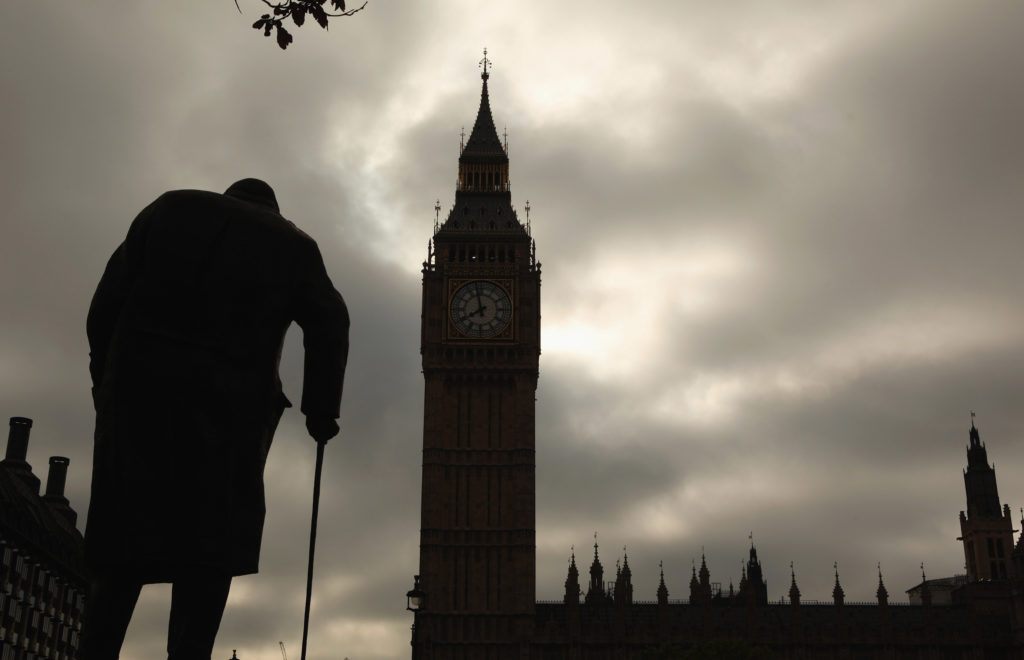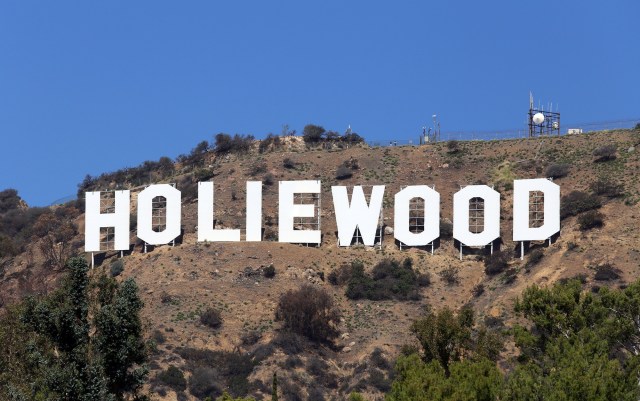Graphic by Krieg Barrie

Clock strikes
BRUTUS
Peace! Count the clock.
CASSIUS
The clock hath stricken three.
(Man in pit at Globe theatre) “Marry, Master Cordwainer, but this play be poor history. Let us away.”
(Second man) “But, good Master Clokkemaker, it be fine drama. Let us tarry.”
***
Shakespeare’s history plays were never historically accurate, and his audiences probably didn’t expect them to be. Few at the Globe could have thought the Romans had mechanical clocks, and even if they did, did it matter?
The Bard was even more cavalier with historical detail in his tragedies. In Titus Andronicus, also set in Ancient Rome, he refers to “Popish tricks” – anachronistic, yes, but conveying an idea that an Elizabethan audience would understand at once. In King Lear, set in pre-historical Britain, he refers to “Bedlam”, though this was a colloquial rendering of the Bethlem Hospital for the insane. In Shakespeare’s contemporary London, it was useful shorthand and therefore reasonable dramatic license. (Perhaps when staged in modern dress, these anachronisms are no longer?)
The “problem” is by no means confined to stage and screen. Let us not begin to look at historical novels, however, if only because, living in that particular glass house, as I do, it is best not to throw stones. Besides, TV and cinema, with their mass audiences, immediacy, and visual capacity to impress, make the “problem” potentially much greater, as UnHerd’s editor, @Montie, suggests:
“The entertainment industry has led opposition to Donald Trump and his “fake news” – but is “fake drama” at least as big a problem? The star of The Apprentice did, after all, emerge from the celebrity/entertainment world as much as from business. That might, just possibly, be more than a coincidence.”
What is truth?
For various reasons, whether sloppy research, honest unawareness or need for excitement and pace, almost no historical drama will be entirely accurate. To the extent that viewers think otherwise is due to their ignorance of history. But ignorance of history isn’t a crime; filmmakers have a duty of care when it comes to portraying history, especially when that history distorts public sentiment towards other nations and historical figures.
A recent example of such distortion is Christopher Nolan’s Dunkirk, a film that the historian Andrew Roberts said “for all the clichéd characterization, almost total lack of dialogue, complete lack of historical context (not even a cameo role for Winston Churchill)… somehow works well.”
As I wrote when Dunkirk was released, the French complained that it didn’t show Frenchmen defending the perimeter; the Indians complained that it didn’t show their two companies of muleteers on the beaches, and the Americans that “the fact that there are only a couple of women and no lead actors of color may rub some the wrong way.”
Worse, it suggested that the Royal Navy abandoned French troops on the beaches in order to evacuate British troops, when in truth there was no discrimination whatsoever, and in doing so injected fake nationalist tension into what was a model of inter-Allied cooperation. As Roberts wrote, “Only much later, when the Nazi-installed Vichy government in France needed to create an Anglophobic myth of betrayal at Dunkirk, did such lies emerge. It is a shame that Nolan is now propagating them – especially since this might be the only contact that millions of people will ever have with the Dunkirk story for years, perhaps even a generation. At a time when schools simply do not teach the histories of anything so patriotism-inducing as Dunkirk, it was incumbent on Nolan to get this right.”
This is the material point. Indeed, at this exigent moment of exiting the European Union, an increase in nationalist tension, fake or otherwise, is the last thing anyone needs. And it would have been easy to avoid, if only by a statement of the facts and figures with the credits at the end.
Uses and abuses
So what about the latest offering in the nationalism stakes, Joe Wright’s Darkest Hour? The film takes many liberties, but on the whole it has been well received in Britain, if only because the Australian Jonathan Teplitzky’s Churchill: The Untold Story of D-Day (2017) was so preposterous. That, and Gary Oldman’s acting in Darkest Hour. As Andrew Roberts says (yes, there are other British Churchill scholars, but none more thorough):
“Oldman, by total contrast, has, through prosthetics, thoughtfulness and superb acting, caught Churchill brilliantly. He acknowledges our preconceptions about Churchill, and mildly co-opts them with charm and acuity.”
Yet there are concerns, and not just with the neat (or even diluted) whisky on the Churchillian breakfast tray. Professor Eliot Cohen of Johns Hopkins University, Washington DC, a member of UnHerd’s history jury, believes that in presenting Churchill as a Trump-like populist, Darkest Hour elides the lessons that contemporary audiences might learn from his wartime leadership. Writing in The Atlantic, Cohen is dismayed by the gift that Darkest Hour presents to Trump’s supporters:
“Mike Huckabee, former governor of Arkansas, is, in the worst sense of the term, an insightful movie critic. The day after Christmas he left a viewing of Darkest Hour having concluded that yes, Donald Trump is a leader of the Churchillian stamp. He has a limited point. In a twisted way, the profoundly misleading portrayal of Churchill in Darkest Hour is in sync with Huckabee’s spectacularly sycophantic tweet – “Churchill was hated by his own party, opposition party, and press. Feared by King as reckless, and despised for his bluntness. But unlike Neville Chamberlain, he didn’t retreat. We had a Chamberlain for 8 yrs; in @realDonaldTrump we have a Churchill”.”
Cohen, who despairs of the normalisation of Trump by the Republican Party[1. See Professor Cohen’s contribution to last week’s meeting of the History Jury and his answer to the question of which 2017 event will be of greater-than-anticipated long-term significance.], goes on to say that the biggest problem with Darkest Hour is its portrayal of Churchill as essentially “erratic; accused, not entirely unjustly, of systemically bad judgment; at odds with the timid elders of his own party; impulsive; and loud-mouthed… the authentic voice of the people and a forceful bully in the right cause.” And so, “[i]f one squints a bit, one can see the populist conception of leadership here. A Great Man channels the sound instincts of Everyman, and ticks off the great and the good as he defies their timidity and conventional good sense.”

Cohen’s worry is that “the movie allows those who view it, like Huckabee, to succumb to a completely false notion of statesmanship as something scarcely one step removed from being an insufferable blowhard. Reading both wide and deep, expertise, poise, the Roman virtues of gravitas and auctoritas, experience, unremitting effort, organizational skill—all these are the real Churchillian virtues in addition to the eloquence that is so utterly removed from the squeals and barks of the current American president.”
In this, Cohen echoes Canadian Professor Margaret MacMillan, until recently Warden of St Antony’s College, Oxford, who in her much admired The Uses and Abuses of History (2009) warns of the risk of identity which is too narrowly derived from the past “which imprisons us and divides us from others”.
So what of the contention that fake drama/history is more a threat than fake news? Might it be that in the end fake news isn’t pabulum but simply junk food for minds already made up? To closed minds, fake news makes no difference therefore, while to the open-minded it can be easily and quickly rebutted, although of course in the digital age, news, fake or otherwise, is no longer tomorrow’s fish and chip paper. On the other hand, because of a general (and increasing?) ignorance of history, film and drama like Dunkirk, The Crown and Darkest Hour have perhaps a more insidious power to shape perception.
And yet, not every misrepresentation of the past is necessarily malign in its effects. Without Churchill’s undoubtedly romantic evocation of Britain’s island story in 1940, so well portrayed in Darkest Hour, Hitler might never have been defeated. And had Churchill not seen himself in the image of his great ancestor, the Duke of Marlborough, whose biography – panegyric, indeed – he had only lately completed, he might not even have been able to evoke that story so convincingly.
It’s complicated.
***
Over the next few days UnHerd will be publishing other assessments of “fake drama” and its role in shaping cultural attitudes.










Join the discussion
Join like minded readers that support our journalism by becoming a paid subscriber
To join the discussion in the comments, become a paid subscriber.
Join like minded readers that support our journalism, read unlimited articles and enjoy other subscriber-only benefits.
Subscribe